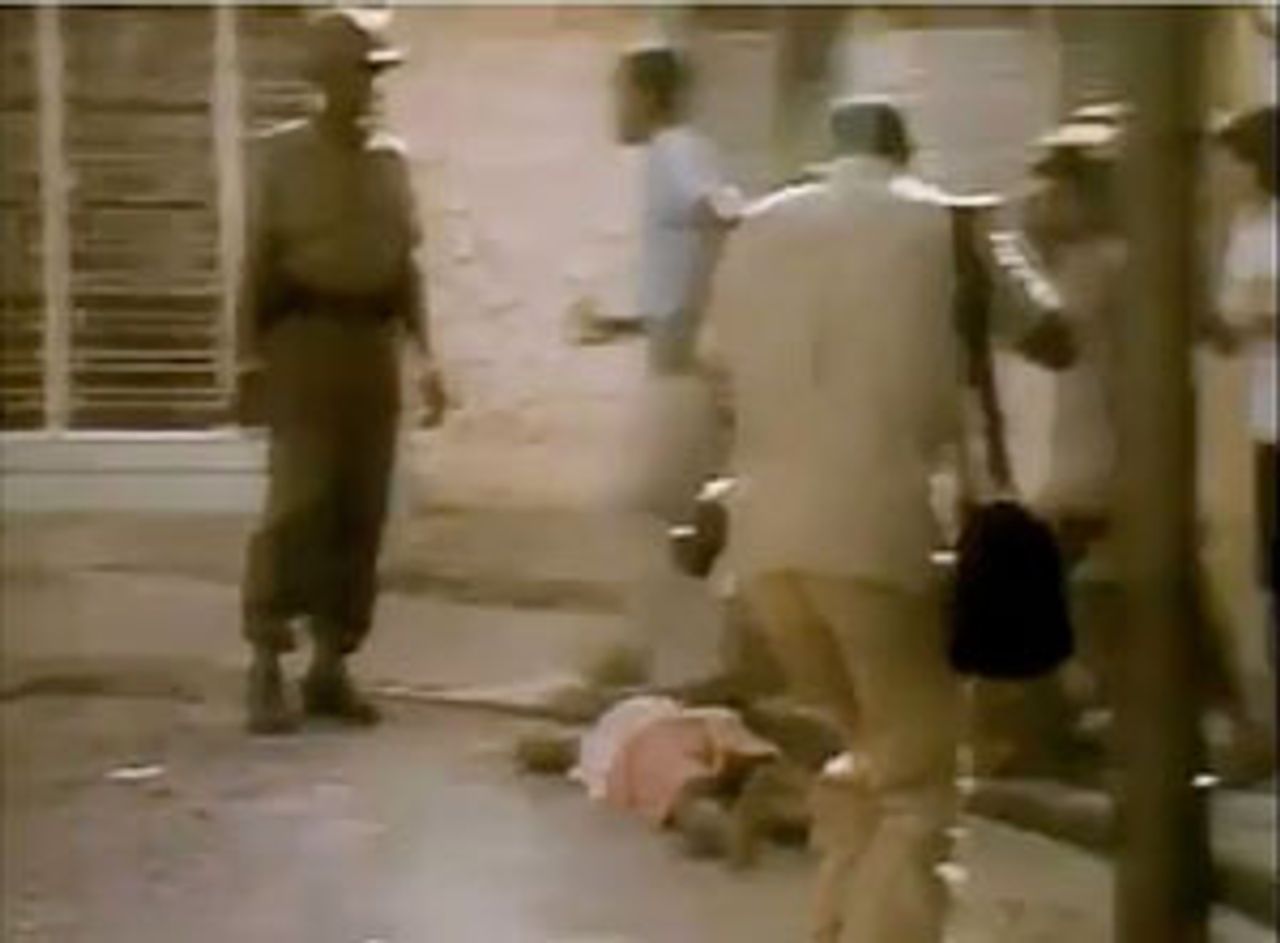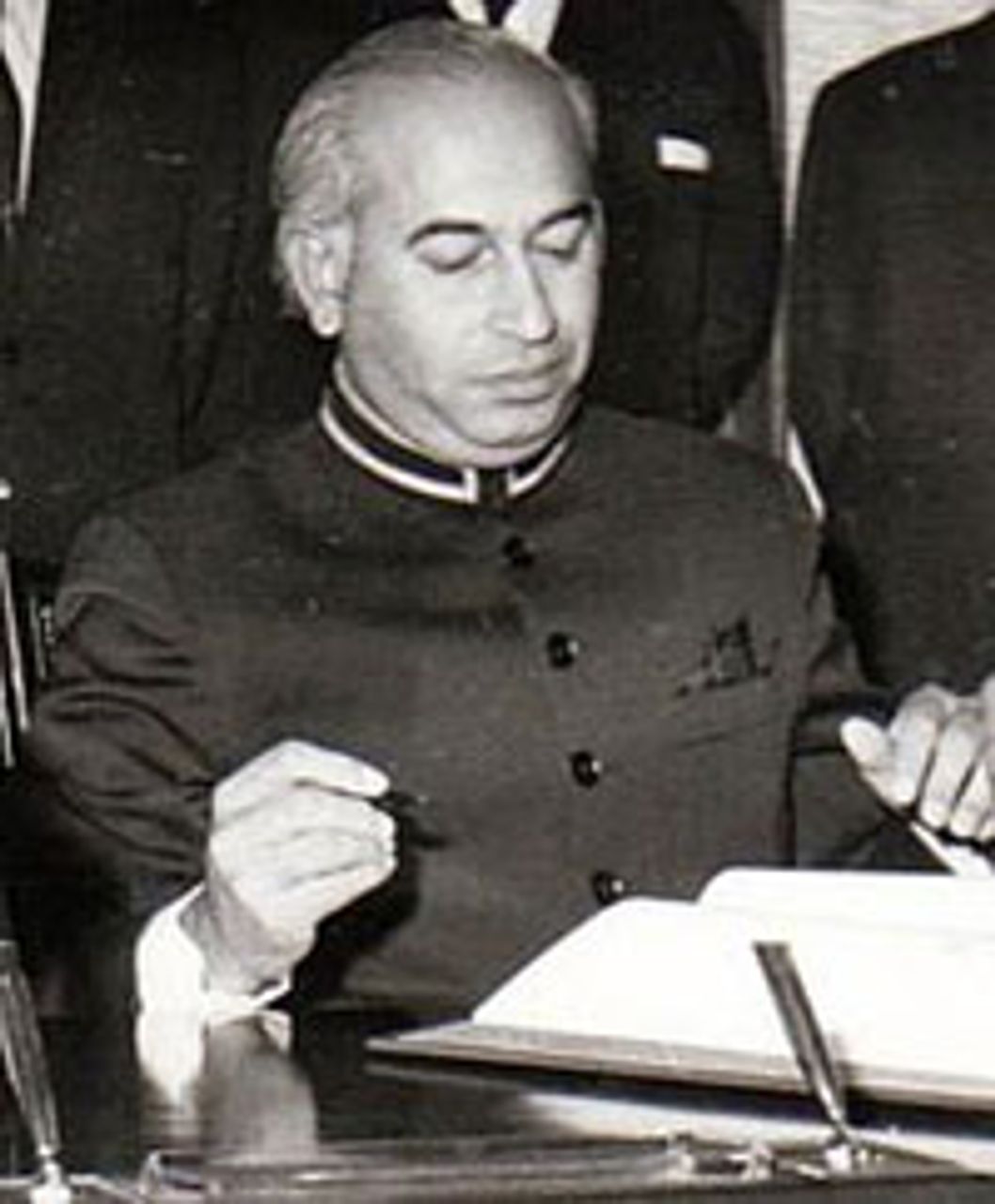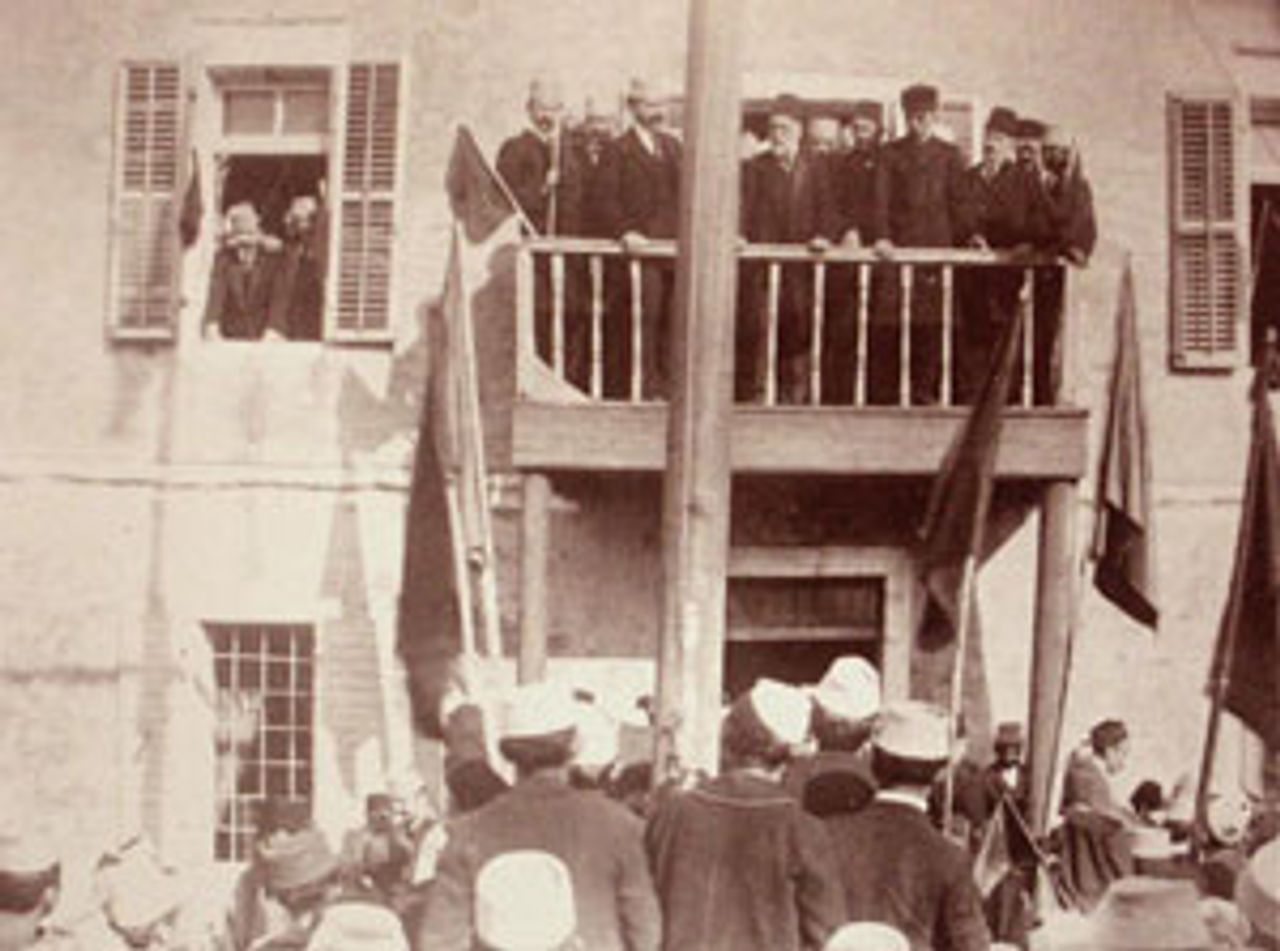This Week in History provides brief synopses of important historical events whose anniversaries fall this week.
25 Years Ago | 50 Years Ago | 75 Years Ago | 100 Years Ago
25 years ago: Namphy regime calls off Haiti ballot after election day massacre
 A victim of the election day violence
A victim of the election day violenceDozens of Haitians were killed and scores more injured in violence on the day of the scheduled national elections, November 29, 1987. As a result, the electoral council, in a telephone call from a secret location, abruptly called off the elections, saying they were to be postponed to an unspecified “later date.”
The US-backed regime of Lieut. Gen. Henri Namphy then disbanded the electoral council, saying it had “imperiled the unity of the nation.” The elections, the first in 30 years, were called after Jean-Claude Duvalier, who succeeded his father as ruler for life, fled the country in fear of popular upheaval, leaving the military in charge. The Reagan administration provided millions of dollars in arms to the Namphy regime.
In the months preceding the election, terrorist violence had been building up against the population, killing and injuring hundreds. The ton-tons macoutes, the former political police and terror apparatus of the Duvalier regime, were given free rein by the military to carry out hideous attacks on men, women and children lined up at polling places. In many of these attacks, the thugs were joined by army troops. In several areas, the army acted alone to drive off voters with gunfire, ransack voting places and destroy ballots.
The army’s role was unmistakably revealed in the contrast before and after the aborted elections. While in the weeks before the elections, the ton-tons macoutes carried out a rampage of violence, often in broad daylight and in the center of Port-au-Prince, the troops were confined to their barracks and the army did nothing to interfere. But in the week after the elections, when opposition politicians and union leaders called a general strike to protest the disruption of the elections, large numbers of heavily armed troops were deployed throughout the capital.
50 years ago: India, Pakistan tensions over Kashmir
 Zulfikar Ali Bhutto
Zulfikar Ali BhuttoWith its war with the People’s Republic of China over disputed territory in the Himalayas still at a cease-fire stage, India found itself embroiled in new controversy with Pakistan over disputed areas in Kashmir.
On November 30, Indian prime minister Jawaharlal Nehru agreed to meet Pakistani president Mohammad Ayub Khan for a negotiated settlement to the Kashmir question, which had led to war between the two states created by the partition of British-ruled India in 1947. Nehru shifted course the next day, indicating in a speech to parliament that Indian aims in Kashmir were non-negotiable, only to reverse himself once again on December 1, affirming that negotiations could proceed. India controlled two thirds of Kashmir; Pakistan sought full control based on the region’s largely Muslim population.
Diplomacy in the broader region had entered a state of flux. The Sino-Indian War had led to a rapprochement between the US and India, although secretly the US reaffirmed its military alliance with Pakistan. Secretary of State for East Asian Affairs Averell Harriman, together with the British Foreign Office representative, Duncan Sandys, now sought to pressure India and Pakistan toward an accord. The Soviet Union, which had in the preceding years developed military and economic ties with India as its relationship with China cooled, that week suspended the delivery of MiG jets to India, at least in part out of fear of appearing to side with the imperialist powers against China.
Pakistan, in turn, had drifted toward an informal understanding with China. On November 27, government spokesman Zulfikar Ali Bhutto said that there were no circumstances under which Pakistan would be drawn into the conflict alongside India against China. “There are no conditions to our friendship with China,” Bhutto said. “Friendship with the Chinese people is fundamental.”
75 years ago: Japan recognizes Franco regime in Spain
The Japanese cabinet publicly recognized General Franco’s fascist forces as the sole legitimate authority in Spain on December 1, 1937, flouting the Republican government in Madrid and international law. Franco, who was seeking to topple the democratically elected regime and suppress the Spanish working class, reciprocated the next day by recognizing the Japanese puppet state in Manchuria, called Manchukuo by the Japanese.
The move by imperial Japan was a quid pro quo with fascist Italy, which was heavily involved in the war against the Spanish government. Mussolini’s administration in Rome had recently recognized Manchukuo as a new and separate state—the first time an important power and member of the League of Nations had done so.
The Rome correspondent for the Japanese Asahi wrote that the decision to recognize the Japanese occupation of Manchuria was “a bombshell aimed at the League.” Mussolini derided the ostensibly non-interventionist foreign policy identified with the name of the former American president Woodrow Wilson, declaring Manchukuo had been “constituted after the promulgation of the Wilsonian sacred tables, outside of sacred canons and the venerable paragraphs.”
100 years ago: Albania declares independence from Ottoman Empire
 Ismail Qemali proclaiming Albania's independence
Ismail Qemali proclaiming Albania's independence On November 28, 1912, Albania proclaimed its independence from the Ottoman Empire. The path to separatism emerged in the aftermath of the 1908 Young Turk Revolution, when successive decrees denied Albanians autonomy. This produced uprisings and nationalist movements in the following years.
In 1912, Albanian officers and soldiers mutinied against the Ottoman Empire. Hostilities broke out in the south and north of Albania after elections in April, when the Committee of Union and Progress (CUP) government manipulated the results preventing the return of Albanian deputies.
Other sources of anger were the decisions of the Young Turks to conscript Albanians into the Ottoman Army, increase taxes, and attempt to disarm the Albanian population.
Hostilities continued, with Kosovo Albanians occupying the Macedonian city of Skopje in August. The Ottoman Empire relented and began plans for Albanian autonomy, but in early October, the first Balkan war began, with Greece, Montenegro, Serbia and Bulgaria declaring war on the Ottoman Empire.
Albania faced the immediate threat of being partitioned among Greece, Serbia and Montenegro. Austria-Hungary and Italy supported Albanian independence and opposed the arrival on the Adriatic Sea of the Serbian army because it posed a threat to their domination of the Adriatic, fearing also that a Russian base could be established in a Serbian Adriatic port.
With support from London, Rome and Vienna, Albanian leader Ismail Qemali, known in Turkish as Kemal Bey, advanced a proposal to prevent the partitioning of Albania by rejecting the earlier proposal for autonomy granted by the Ottoman Empire. Qemali’s proposal was accepted at the All-Albanian National Congress, where the Declaration of Independence was signed on November 28, and he was elected president. Soon after Greece, Montenegro and Serbia occupied Albania.
